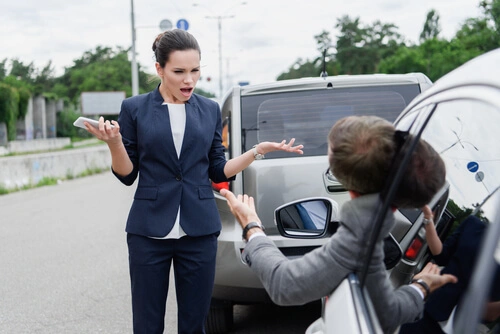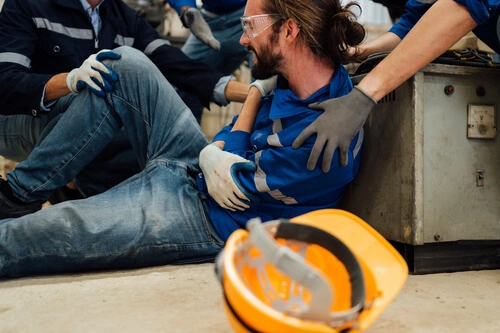Your Rights at DUI Checkpoints in Tampa, Florida

It’s a weekend night in Tampa. You’re heading home from Ybor City or cruising through South Howard when the traffic slows down, and then you see the flashing lights. It’s a DUI checkpoint. Suddenly, your relaxing night turns into a moment of uncertainty. What do you do? Are these legal? Do you have to answer questions? Here’s the good news: DUI checkpoints in Tampa aren’t some wild legal trap. They follow rules, and you have rights.
From understanding sobriety checkpoint rights to knowing when to call a DUI defense lawyer Florida drivers trust, this guide breaks it all down for you. Whether you’re new to Tampa or just want to be prepared, this blog has your back.
Are DUI Checkpoints Legal in Tampa?
Yes, they are—but with rules.
In Florida, DUI checkpoints are legal under both state and federal law, but law enforcement agencies must follow particular procedures. The Florida Supreme Court and U.S. Supreme Court have upheld the legality of these checkpoints as long as they are:
- Systematic and neutral (e.g., stopping every third car)
- Announced in advance
- Staffed with supervisors
- Operated with minimal intrusion
Hillsborough County law enforcement—including the Tampa Police Department and the Sheriff’s Office—often conduct DUI checkpoints during holidays, special events, or weekends when nightlife is booming.
So yes, they’re legal—but they must be fair.
DUI Checkpoints Around Tampa Neighborhoods
You don’t have to guess where DUI checkpoints might be. Police typically target high-traffic or nightlife areas.
Ybor City Checkpoints: Known Areas for Nightlife Stops
This historic district is party central. Packed clubs, bars, and late-night eats make it a frequent checkpoint hotspot.
South Tampa & Hyde Park: Late-Night Weekend Stops
Popular among young professionals and college students, this area sees a spike in DUI checkpoint activity on Fridays and Saturdays.
Downtown Tampa & Channelside: Festival and Event Patrols
You can bet officers are out checking for impaired drivers whenever there’s a Lightning game, Gasparilla event, or concert.
US-41 & I-275 Entrances: High-Traffic DUI Enforcement Zones
Interstate on-ramps are common checkpoint zones because of the dangers impaired drivers pose at highway speeds.
What to Expect at a Sobriety Checkpoint
When you encounter a DUI checkpoint in Tampa, the process is typically structured and brief—unless officers detect signs of impairment. Here’s how it usually unfolds:
Initial Stop and Screening
As you approach the checkpoint, an officer will signal you to stop and ask you to roll down your window. They’ll begin a short interaction, often just enough to observe your behavior, speech, and any visible signs of impairment, like the smell of alcohol, slurred speech, or red eyes. You’ll also be asked to provide your driver’s license, vehicle registration, and proof of insurance.
Field Sobriety Tests
If the officer suspects you may be under the influence, you could be asked to step out of the car for a field sobriety test. Common evaluations include:
- Horizontal Gaze Nystagmus (HGN): Following an object with your eyes.
- Walk-and-Turn Test: Walking heel-to-toe in a straight line and turning.
- One-Leg Stand: Standing on one leg while counting aloud.
Breath Test or Arrest
If you fail these tests or refuse them, officers may administer a breathalyzer test. If your BAC is above the legal limit, or if refusal laws apply, you could be arrested, making it crucial to understand your sobriety checkpoint rights and call a DUI defense lawyer in Florida immediately.
Your Rights During a DUI Stop
No matter where the DUI checkpoint is in Tampa, your rights stay the same. Here’s what you should know:
Right to Remain Silent
You’re allowed to stay quiet. You must provide ID, license, and registration, but you don’t have to answer questions like “Have you been drinking tonight?”
Right to Refuse a Search
Unless the officer has probable cause, you can refuse a vehicle search. Politely say, “I do not consent to a search.”
Right to Legal Counsel
If you’re arrested at a DUI checkpoint, ask for a DUI defense lawyer, Florida right away. Don’t try to argue your case on the street.
Understanding your sobriety checkpoint rights helps you stay calm and collected—even when nerves kick in.
What to Do If You Are Arrested at a DUI Checkpoint
Getting arrested at a DUI checkpoint can be overwhelming, but your actions afterward can make a difference:
- Stay calm and do not resist
- Politely request a lawyer
- Do not say anything beyond what’s required
- Write down everything you remember as soon as possible
The sooner you talk to a DUI defense lawyer Florida, the better chance you have of challenging improper procedures or faulty evidence.
Why You Need a DUI Defense Lawyer in Tampa
You’re not just fighting a ticket. You’re facing a criminal charge that could follow you for years. A qualified DUI defense lawyer Florida offers:
- Local knowledge of Tampa’s legal system
- Experience with checkpoint defenses
- Tactics to challenge faulty sobriety tests or a lack of probable cause
- Support through court appearances and negotiations
Sometimes, the difference between license suspension and dismissed charges comes down to having the right attorney.
Contact MegaJustice for Immediate Legal Help
If you or someone you care about has been arrested at a DUI checkpoint, you don’t have time to waste. Legal deadlines move fast, and evidence can disappear. Our team at MegaJustice offers free consultations and 24/7 legal support. A knowledgeable DUI defense lawyer Florida can help you understand your options and protect your sobriety checkpoint rights from the start. Don’t wait—call us at MegaJustice now to speak with our DUI defense lawyer in Florida and take the first step toward protecting your future.
DUI Checkpoint Questions People Ask in Tampa
Have questions about DUI checkpoints in Tampa? You’re not alone. Here are some of the most common questions people ask, along with the answers that could help you stay informed and protected.
Q. Where are the DUI checkpoints tonight in Tampa?
- You’ll often find DUI checkpoints in areas like Ybor City, South Howard, Dale Mabry Highway, and near the I-275 entrance. Locations are usually announced by the Tampa PD or the Hillsborough County Sheriff’s Office.
Q. Are DUI checkpoints legal in Florida?
- Yes. Florida allows DUI checkpoints if law enforcement follows strict guidelines, such as neutral stopping patterns and advance public notice.
Q. What is a DUI checkpoint?
- A DUI checkpoint is a temporary roadblock where police stop vehicles to check for impairment. Officers don’t need probable cause to stop you, unlike a regular traffic stop.
Q. Is a DUI a crime in Florida?
- Absolutely. A DUI is a criminal offense, even for a first-timer. It’s usually a misdemeanor, but it can be a felony depending on the circumstances. Penalties include fines, jail time, and license suspension.
Q. Is a DUI a misdemeanor or felony?
- A first or second DUI is typically a misdemeanor in Florida. A third DUI, DUI with serious injury, or DUI manslaughter can be charged as a felony
Q. What is DUI classified as?
- In Florida, DUI is a criminal charge. It can appear on your criminal record even for a first offense. It can affect employment, travel, and insurance rates.
Q. Is drunk driving a felony?
- It depends. If your DUI involved injury, death, or you’ve had multiple offenses, it can become a felony.
Q. How many DUIs make it a felony?
- Three within 10 years or any DUI causing serious harm can lead to felony charges.
Q. Is DUI considered a criminal offense?
- Yes. In Tampa and across Florida, a DUI is not just a ticket—it’s a charge that can go on your criminal record.
Q. Does a DUI stay on your criminal record?
- Yes, DUI charges stay on your criminal record, and expungement is rare in Florida. It can stay with you for life unless you successfully challenge it in court.
Q. Is a DUI a criminal charge or a traffic violation?
- Both. It’s a criminal offense with traffic-related consequences like license suspension and points on your record.
Q. Is impaired driving a misdemeanor?
- Usually, yes. But if someone’s injured or it’s a repeat offense, it could jump to a felony.
DUI checkpoints are a real part of life in Tampa, from Ybor City nightlife to Channelside event patrols. But being pulled over doesn’t mean your rights disappear. Knowing your sobriety checkpoint rights, staying calm, and contacting a skilled DUI defense lawyer Florida can make all the difference. Whether it’s your first encounter or you’ve been charged, you don’t have to face it alone. Contact us today for a free consultation and start building your defense the right way.










